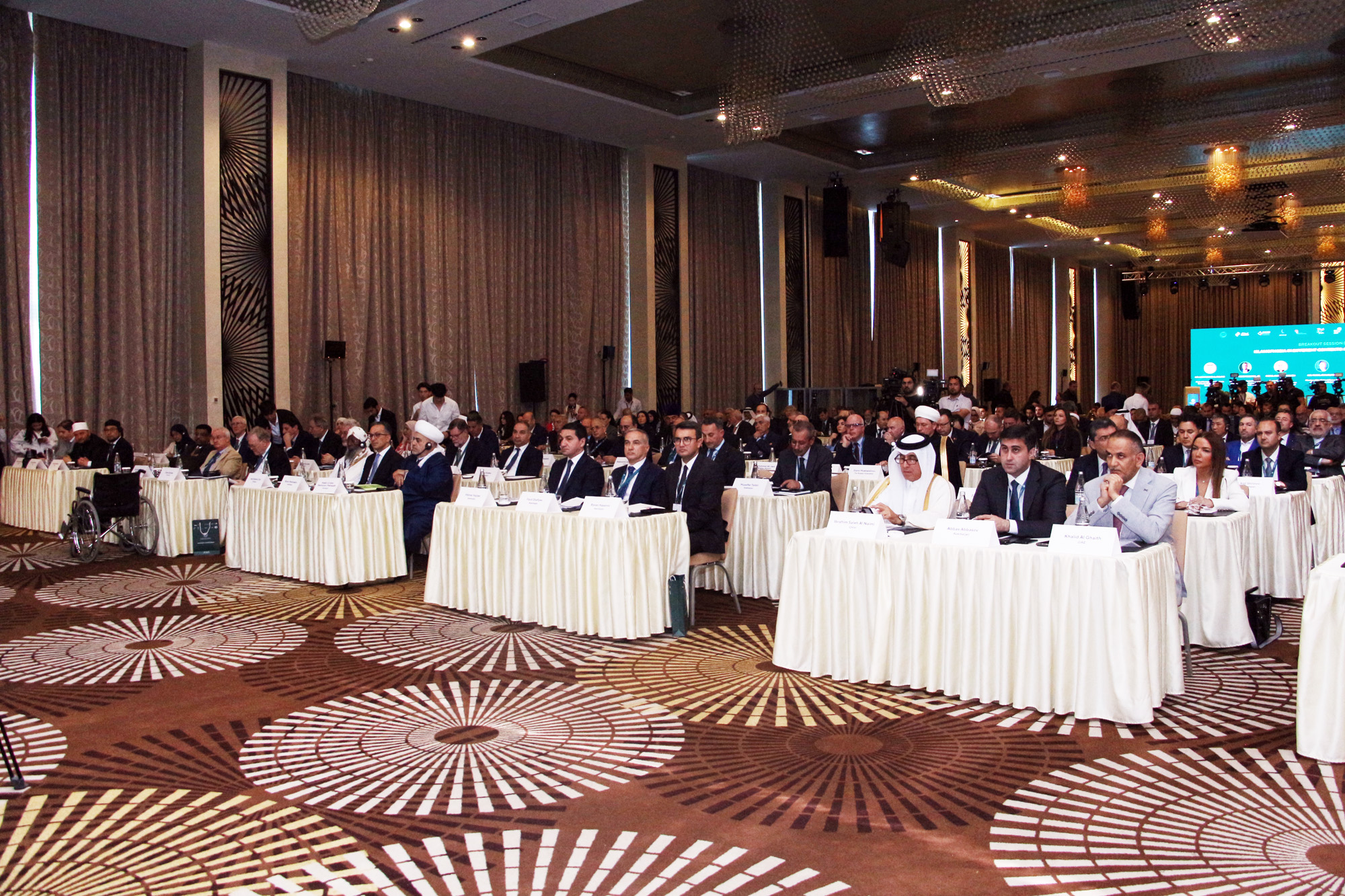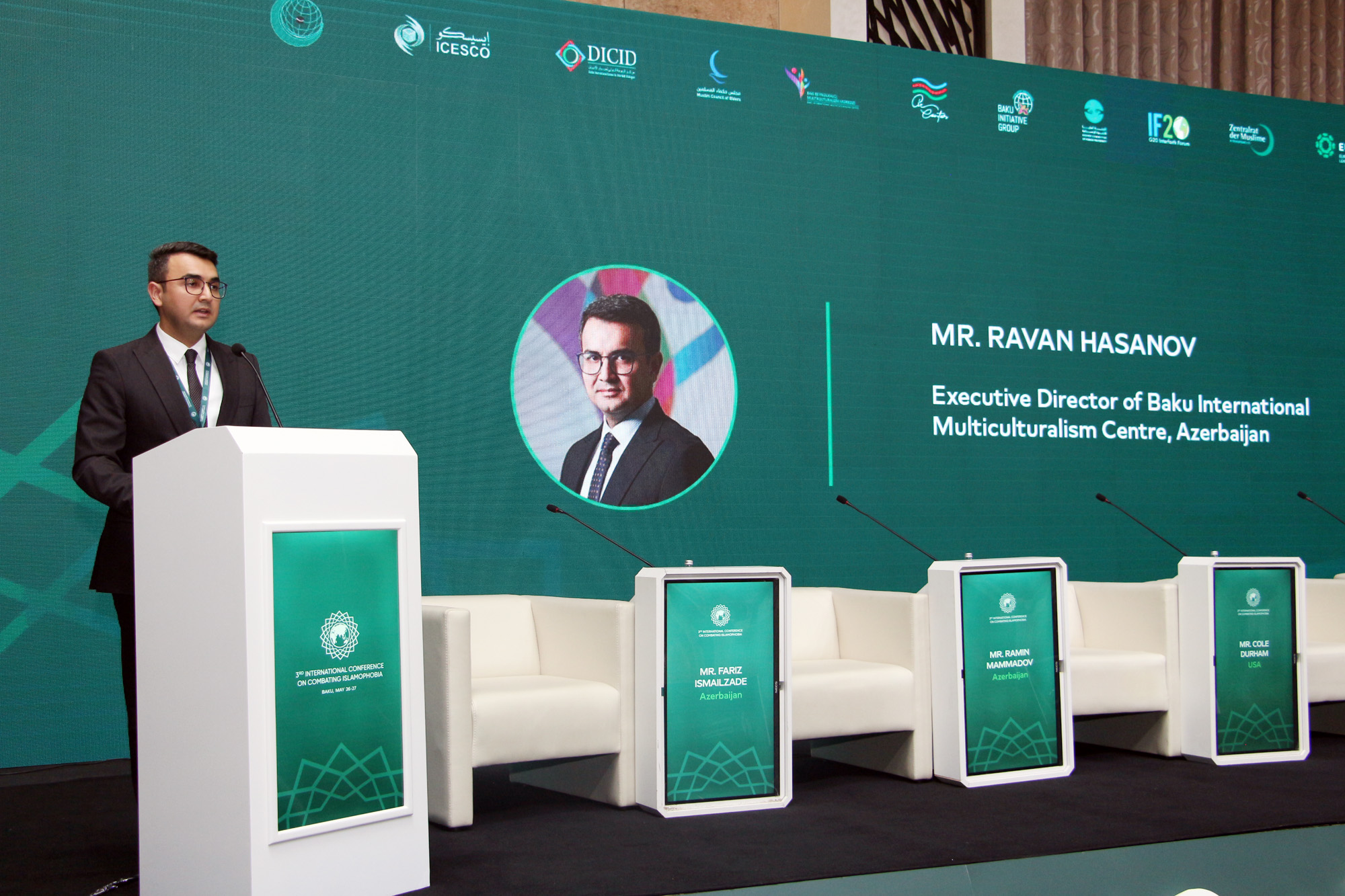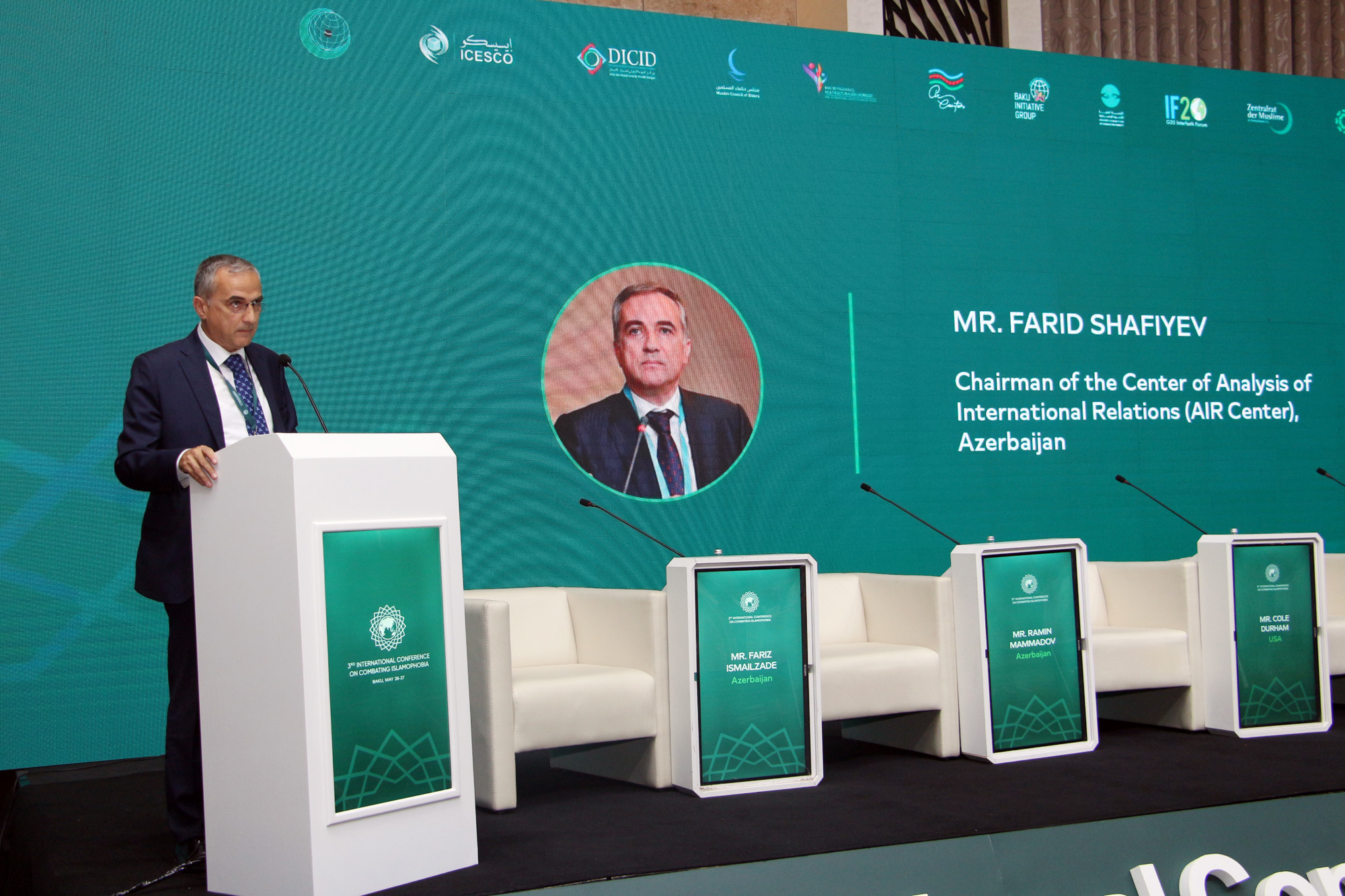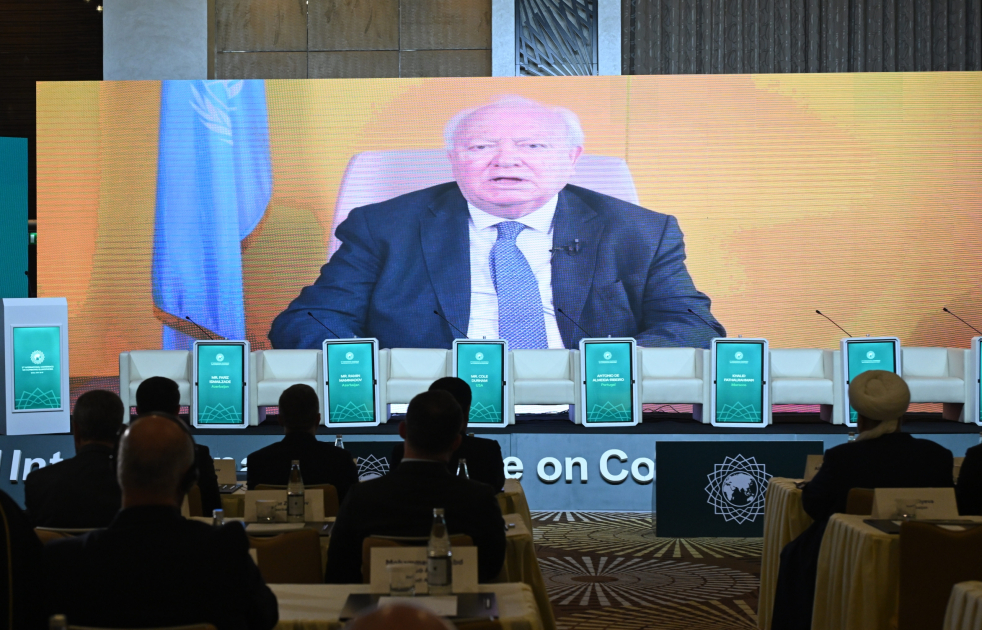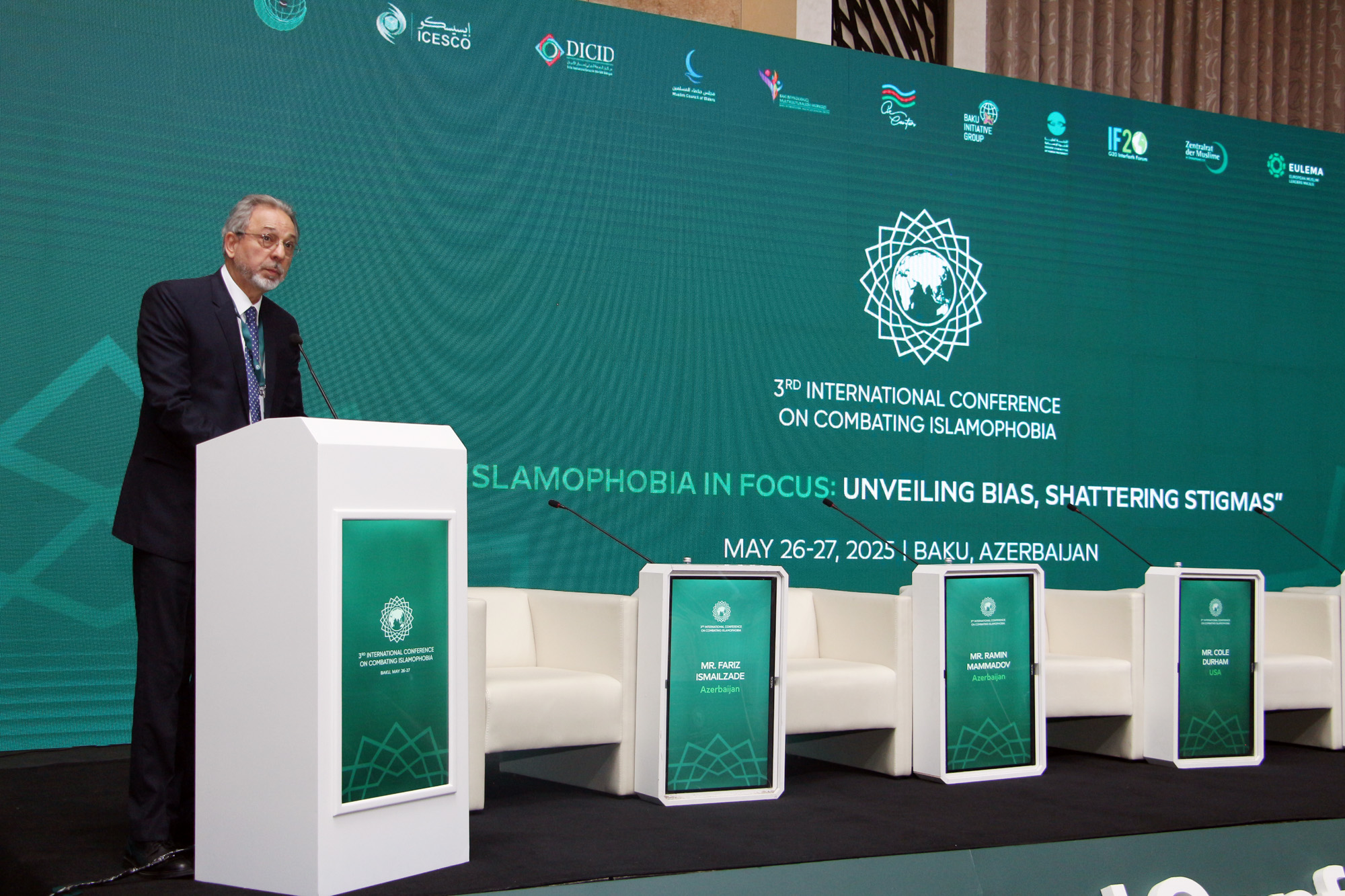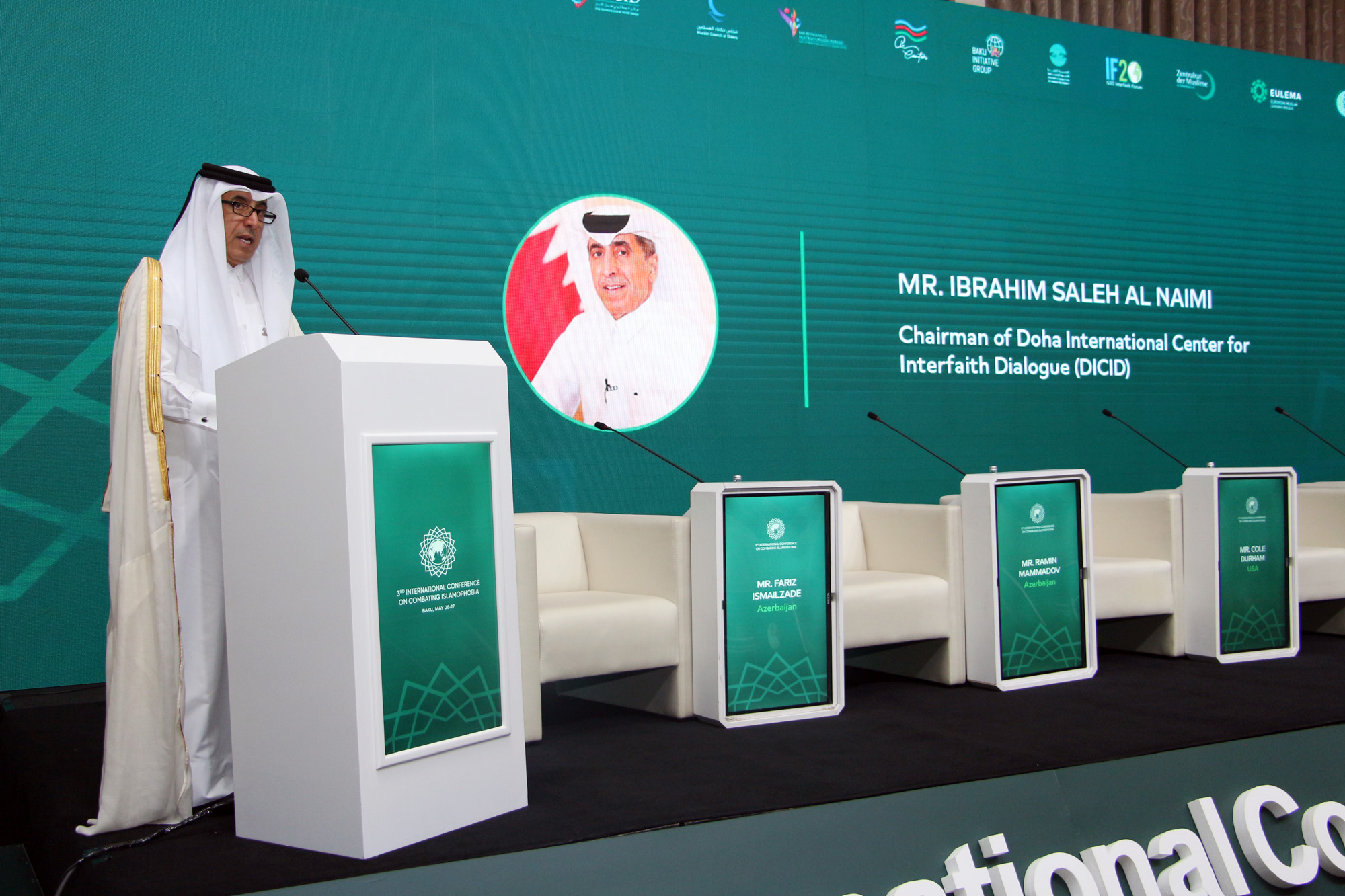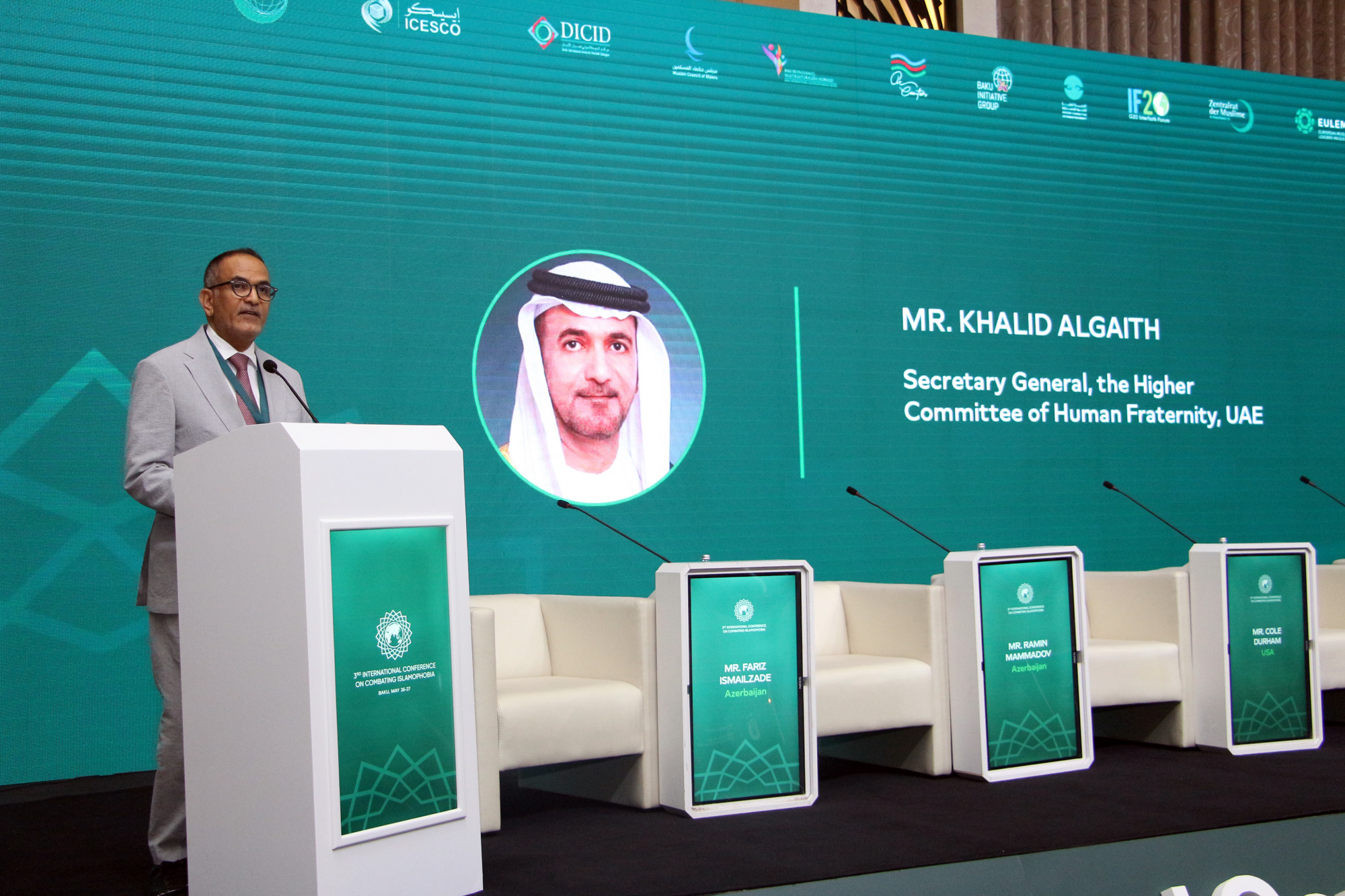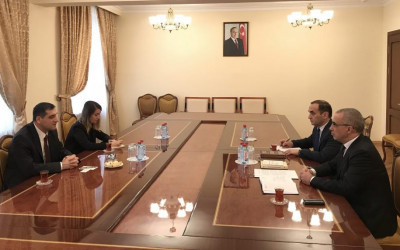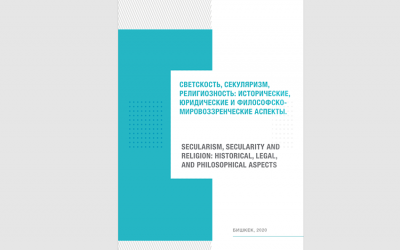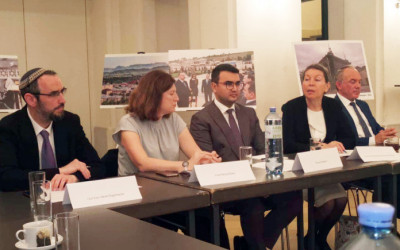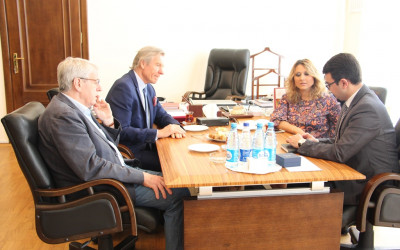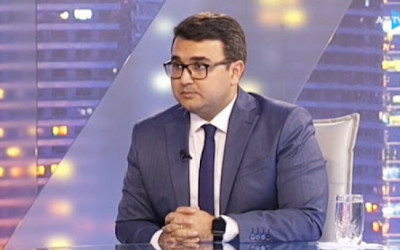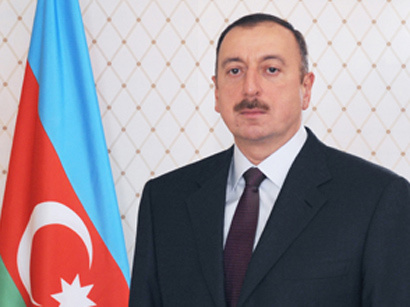Baku hosts International conference on “Islamophobia in Focus: Unveiling Bias, Shattering Stigmas”
Baku hosts International conference on “Islamophobia in Focus: Unveiling Bias, Shattering Stigmas”
A two-day international conference themed “Islamophobia in Focus: Unveiling Bias, Shattering Stigmas” got underway in Baku on Monday.
Marking the 3rd anniversary of the International Day to Combat Islamophobia, the event is co-organized by the Baku International Multiculturalism Centre, the Center of Analysis of International Relations, and the Baku Initiative Group.
Among the conference’s international partners are the G20 Interfaith Forum (IF20), the Organization of Islamic Cooperation (OIC), the Islamic World Educational, Scientific and Cultural Organization (ICESCO), the Doha International Center for Interfaith Dialogue (DICID), the Higher Committee of Human Fraternity (HCF), the Council of Muslim Elders, the Central Council of Muslims of Germany, the European Muslim Leaders’ Assembly (EULEMA), and the International Muslim Forum.
At the opening ceremony, Hikmet Hajiyev, Assistant to the President of Azerbaijan and Head of the Presidential Administration's Foreign Policy Affairs Department, read out the address of President Ilham Aliyev to the conference participants.
The event featured the screening of a short film highlighting Islamophobia.
In his opening remarks, Ravan Hasanov, Executive Director of the Baku International Multiculturalism Center (BIMC), described Islamophobia as one of the disturbing realities of modern time and a clear manifestation of discrimination. “Unfortunately, in many Western societies, this form of discrimination has become the norm, appearing in hateful rhetoric, exclusionary policies, and even acts of violence,” Hasanov said. Highlighting the Islamophobia as part of a growing dangerous trend globally, he noted that the rise of Islamophobia is a serious issue that should not be overlooked.
“The need for urgent international action to combat discrimination against Muslim communities by both the state and society—including hate crimes and the destruction of Muslim heritage sites—is becoming ever more pressing. We are witnessing an increasingly alarming rise in Islamophobia and the strengthening of state-level oppression and discriminatory activities against Muslim communities,” said Farid Shafiyev, Chairman of the Board of the Center of Analysis of International Relations (AIR Center).
He emphasized that the rise of far-right political forces in Europe is closely linked to measures perceived as restricting Islamic traditions, often framed within the context of promoting "assimilation" or "integration." National narratives are increasingly shaped by populist rhetoric that stigmatizes Muslims and equates their religious identity with extremism.
Highlighting the problem of Islamophobia and anti-Muslim hate crimes, Farid Shafiyev stated: “Islamophobia, therefore, poses a serious threat to global stability and cohesion, undermining international security and cooperation.”
Chairman of the Caucasus Muslims Office, Sheikh ul-Islam Haji Allahshukur Pashazade, pointed out that Azerbaijan's value for religious diversity, multiculturalism traditions and principled position against Islamophobia are exemplary for the whole world.
The opening ceremony then featured a video address by Miguel Ángel Moratinos, UN Under-Secretary-General and High Representative for the United Nations Alliance of Civilizations (UNAOC).
“Muslims face institutional discrimination and socio-economic restrictions. These biases contribute to their stigmatization and unwarranted racial profiling. Negative media representation, along with the anti-Muslim rhetoric and policies of certain political leaders, further strengthen these prejudices,” the UN Under-Secretary-General said.
Highlighting that people should be allowed to practice their beliefs peacefully and without fear, wherever they are, Miguel Ángel Moratinos added: “Religious sites around the world have been targeted in attacks. Places of worship must serve as safe havens, not locations of terror and bloodshed. We all must stand against hatred and discrimination in all its forms.”
Then, Mehmet Pacaci, OIC Secretary General’s Special Envoy, read the address of OIC Secretary General Hissein Brahim Taha to the conference participants.
In his address, OIC Secretary-General Hissein Brahim Taha
described Islamophobia not only a form of religious discrimination, but also a manifestation of prejudice, misconceptions, and hateful rhetoric. He added: “Combating it requires a global effort that serves not only a particular region but also the shared values of humanity as a whole. In this regard, such international events provide a robust platform for addressing Islamophobia.”
Highlighting Azerbaijan's principled and consistent stance on this issue, the OIC Assistant Secretary-General emphasized that the country’s ongoing efforts are highly appreciated.
“The initiatives undertaken both at the state level and in cooperation with international organizations make a significant contribution to building global solidarity against Islamophobia,” the OIC Assistant Secretary-General stated.
“Azerbaijan has achieved tremendous success, particularly in raising international awareness. The efforts to inform the global community, shape public opinion, and expose the consequences of religious discrimination are highly commendable. This is not only a fight against Islamophobia but also a demonstration of effective measures taken to protect interfaith harmony and promote multicultural values. Azerbaijan’s role in this area stands as a valuable example for other countries,” he added.
“We all bear the responsibility to fundamentally challenge the stereotypes that fuel Islamophobia. This requires practical action,” said Ibrahim Saleh Al-Naimi, Chairman of the Doha International Center for Interfaith Dialogue. He noted that Islamophobia has become a global issue, with critical rhetoric leading to growing attacks against Muslims. “The main goal of this event is to collect evidence, highlight political dimensions, and amplify the voices of those who have been marginalized. This conference serves as a collective declaration. The fight against Islamophobia is also a matter of peaceful coexistence,” Al-Naimi emphasized. He underscored that Islamophobia is not solely a religious issue but fundamentally a human rights concern.
“In today’s world, Islamophobia is not just an ethical dilemma—it is a humanitarian crisis. It represents a serious degradation of human rights. We must combat it in all its forms and return to its historical roots. This is not a new phenomenon. Misconceptions about Islam have persisted throughout history. Regardless of religious background, we must work together to eliminate this threat.”
Al-Naimi concluded by stressing that the Baku conference represents a significant step toward collective success in addressing Islamophobia and promoting global understanding.
“By gathering at today’s international conference, we are not merely addressing a pressing issue but also reaffirming our shared duty to foster a world rooted in compassion, fairness, and mutual respect,” stressed Khalid Al-Ghaith, Secretary General of the Higher Committee of Human Fraternity.
Praising Azerbaijan's efforts, Al-Ghaith emphasized that the country stands as a remarkable example of consistent and effective action in combating Islamophobia and promoting multiculturalism and interfaith dialogue. He noted that fostering coexistence, particularly through mutual understanding and respect among different faith communities, must begin at the foundational level—within schools. “As younger generations are shaped, it is essential to instill in them the values of tolerance, fraternity, and coexistence. Educational content, awareness programs, and school curricula play a pivotal role in this process,” he said.
“Combating Islamophobia should not be confined to reactive responses. It must also encompass preventive measures, educational initiatives, and sound policy-making. The adoption of strategic plans and dedicated programs in various countries is critical to this effort,” he added.
Al-Ghaith stressed that promoting tolerance, mutual understanding, and brotherhood is vital for the well-being and future of societies. “Creating stable and secure communities is one of the most valuable legacies we can pass on to future generations,” he concluded.
The main aim of the event is to establish an academic platform for discussing the growing global and national trends targeting Muslims and Muslim-majority countries.
Scholars from nearly 40 countries, experts from international organizations, religious leaders, and representatives of non-governmental organizations are participating in the conference.
The conference will feature discussions on the Global Trends in Islamophobia: Challenges and Responses, Anti-Muslim Hatred in Politics: Legal Frameworks and Advocacy Strategies, Islamophobia in Different Contexts: Regional Perspectives, Islamophobia in Media and Digital Platforms: How Artificial Intelligence Systems Can Spread and Reinforce Islamophobic Bias, Women, Identity and Stereotypes: Navigating the Intersection of Religious and Cultural Prejudices, Institutionalization of Anti-Muslim Legislation in Europe: Rhetoric in the Context of Radicalization of Islamophobic Propaganda, Preserving Islamic Cultural Heritage in a Changing World and Youth Call for Inclusion: Combating Bias and Misconceptions.


